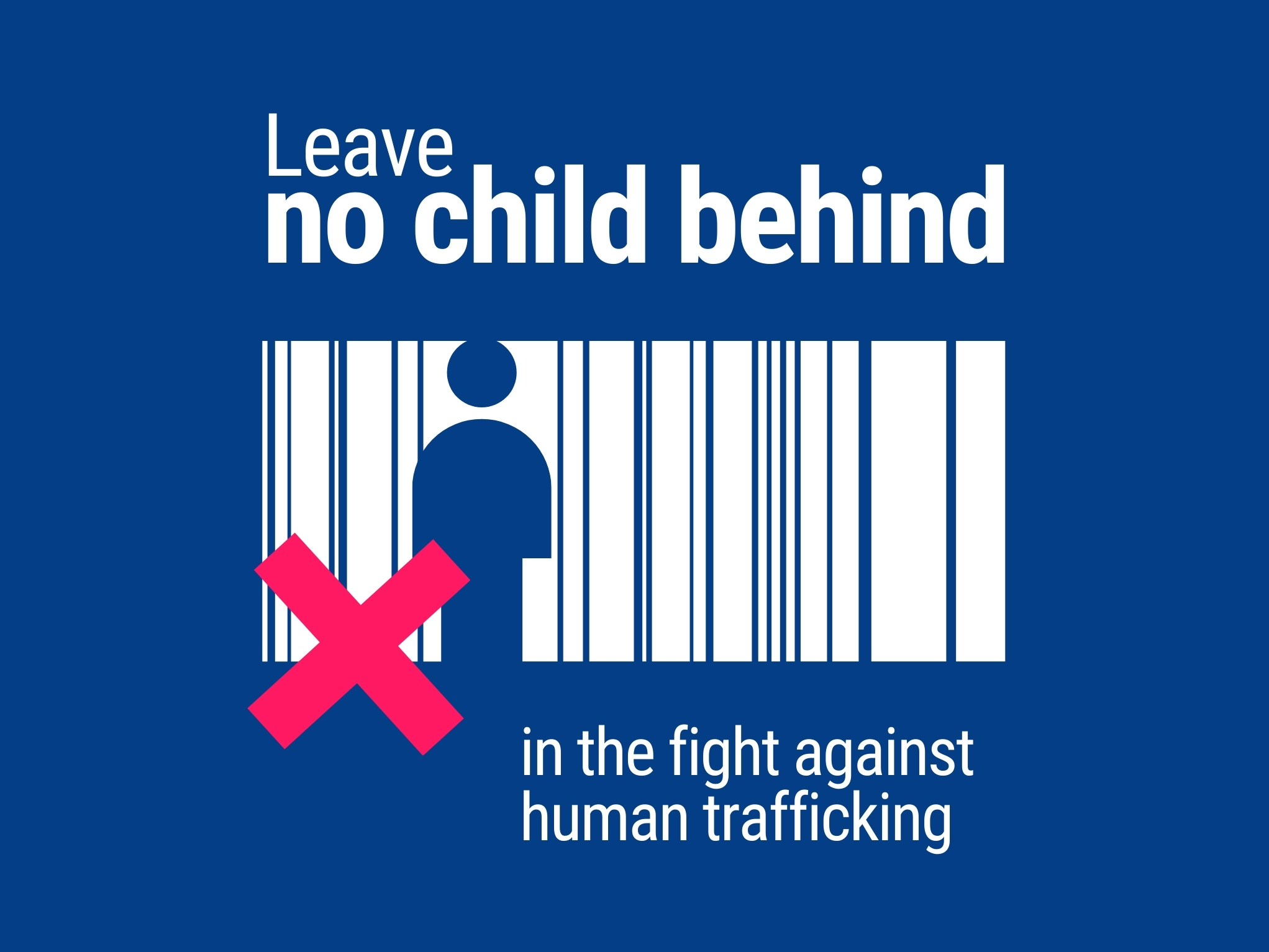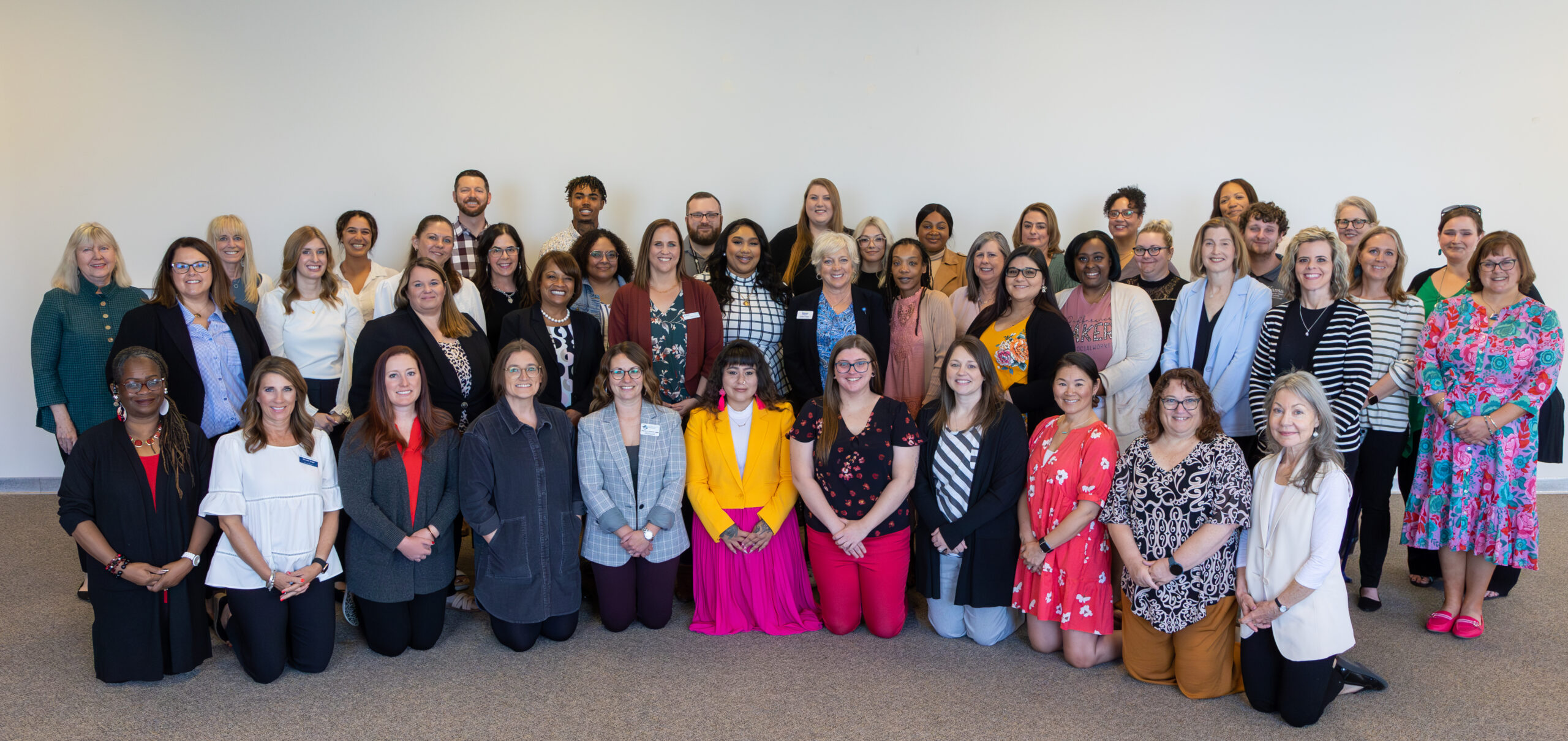Staying home during the COVID-19 crisis is supposed to be a safety measure that protects our community, ourselves, and our children from further spread of the coronavirus. Unfortunately, for many children, home is anything but a haven – especially when so many families already at risk must live in isolation together for extended periods of time.
As neighbors, friends, and extended family also practice shelter-in-place, child neglect and abuse become even more difficult to spot. With that in mind, Saint Francis staff took the opportunity to raise awareness about child abuse and to promote the physical and emotional well-being of children and families in safe, stable, and nurturing environments during Child Abuse Prevention Month in April.
Throughout the month, Saint Francis employees shared photos of themselves with one fingernail painted blue to represent one in five children who are abused or wearing blue on Fridays to highlight Child Abuse Prevention awareness. Saint Francis posted those photos on Facebook and Twitter, along with information and tools for helping children trapped in potentially abusive situations. That message assumed greater urgency than in years past.
“This is a particularly dangerous time because many of the ‘respite’ options, such as school and work, are not available to parents and children,” says Pamela Cornwell, Saint Francis Ministries’ clinical director. “It can create tension and pressure in the home. So, it’s important during this time for us all to remain vigilant and to reach out to anyone we might have concerns about.”
Approximately 678,000 children were abused or neglected in the U.S. last year. Children are most often victims in families dealing with serious stressors that can include poverty, unemployment, and substance use. As employers lay off parents or send them home to work, schools and daycare centers are also closing. School closures remove one of a child’s safe spaces, where they get temporary respite from abuse and receive a healthy meal. Teachers are usually the first to notice signs of abuse or neglect and report them to the authorities.
In at-risk families, social isolation and economic uncertainty add to an already stressful situation, increasing the threat of abuse and neglect to children in the home, along with other forms of domestic violence. That’s why, according to Pam, everyone within a community needs to help protect its most vulnerable members. That can be especially difficult when quarantine or social distancing widens the space between people in need and neighbors and care providers.
Saint Francis social workers, therapists, and support staff have employed a variety of strategies to support families, protect children, and ensure continuity of service. Those strategies include video conferencing, social distance yard checks, and home visits utilizing personal protective equipment. Staff have also developed “code words” for clients to use if they feel unsafe communicating during a video conference session. To help reduce stress within families, Saint Francis moved some respite care training online and began delivering coronavirus supplies, care/activity packages, and gift cards to foster and birth families.
“It’s going to be especially challenging for us during this crisis to know when families are stressed or children are mistreated because families in which it occurs tend to not be socially visible anyway,” says Pam. “It’s going to take a concerted effort by people close to them to intentionally reach out and offer support. Don’t wait for them to ask.”
Even with social distancing there are actions we can all take if we suspect a family is overwhelmed and struggling:
• Reach out by phone or social media. Go check on them. Let them know you care. Offer to help with errands or babysitting. Bake them a casserole or a batch of cookies. Anything you can do to help relieve stress within the family will help lessen the risk of abuse or neglect for children in the home.
• If you can do so safely, organize a play date at your house with your own kids. Keep the number low and limit it to an hour or two. This gives parents some space and allows the children respite from the stress at home.
• Refer them to the National Parent Hotline (855-427-2736), which provides free counseling and resources to parents 24/7.
• Be vigilant. You might be the only hope for an abused child. Call the National Child Abuse Hotline (1-800-4-A-CHILD) to report suspected abuse. The hotline offers crisis intervention, information, and referrals to thousands of emergency, social service, and support resources. All calls are confidential.
If you are interested in supporting the increased needs brought about by COVID-19, donations can be made online at saintfrancisministries.org by selecting the Crisis Response Fund.
This story was originally published in the June 2020 HiLites. Follow us on social media to learn more about what we do! Facebook and Twitter.





